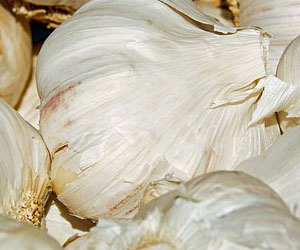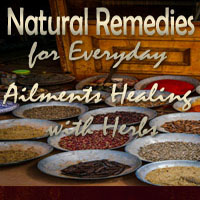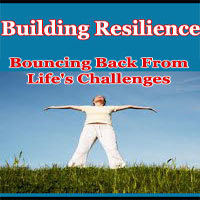


Nurturing Natural Defenses

The immune system is our body's frontline defense against pathogens, toxins, and diseases. It plays a crucial role in maintaining overall health and well-being. In recent years, herbal medicine has gained recognition for its potential to support and boost the immune system. This article explores the relationship between herbal medicine and the immune system, shedding light on the herbs and practices that have gained popularity for their immunomodulatory effects.
The Immune System: Nature's Guardian
Our immune system is a complex network of cells, tissues, and molecules that work together to identify and eliminate threats to the body. This includes bacteria, viruses, fungi, and abnormal cells. A well-functioning immune system is essential for preventing illness and maintaining optimal health.
Herbal Medicine And Immune Support
Herbal medicine, also known as phytotherapy, involves the use of plants and plant-based compounds to prevent and treat various health conditions. Many herbs are valued for their potential to modulate the immune system, enhancing its capacity to defend the body against infections and diseases.
Immune-Boosting Herbs
Several herbs have gained recognition for their immune-boosting properties. Some of the most notable include:
Echinacea (Echinacea Purpurea): Echinacea is renowned for its potential to stimulate the immune system, making it a popular choice for preventing and treating colds and upper respiratory infections.
Astragalus (Astragalus Membranaceus): Astragalus is an adaptogen that can enhance the body's resistance to stress, boost the immune system, and support overall vitality.
Garlic (Allium Sativum): Garlic is celebrated for its antimicrobial properties and its ability to stimulate the immune response. It has been used to ward off infections and promote overall health.
Ginseng (Panax Ginseng): Ginseng is an adaptogenic herb that can improve the body's ability to handle stress and support the immune system's response to infections.
Turmeric (Curcuma Longa): Curcumin, the active compound in turmeric, possesses potent anti-inflammatory and antioxidant properties. It may help regulate the immune response and reduce inflammation.
Medicinal Mushrooms (e.g., Reishi, Shiitake, Maitake): Certain medicinal mushrooms have immunomodulatory effects and are used to enhance the body's defense mechanisms.
The Science Of Herbal Immune Support
Modern scientific research has delved into the mechanisms by which herbal remedies influence the immune system. For example, Echinacea is believed to stimulate the production of white blood cells, while astragalus can enhance the activity of immune cells such as macrophages and natural killer cells. These studies help provide a scientific basis for the use of herbal medicine in immune support.
Safety And Consultation
While herbal remedies can offer valuable support for the immune system, it's essential to use them responsibly. Herbal preparations should be selected and used under the guidance of a knowledgeable healthcare practitioner, especially if you have underlying health conditions or are taking medications.
Herbal medicine and the immune system share a close and time-honored relationship. The use of herbs for immune support is a holistic and natural approach to enhancing the body's defenses against illness. While not a replacement for conventional medical care, herbal medicine can complement a healthy lifestyle, bolster the immune system, and contribute to overall well-being.
A Journey Of Balance And Well-Being
 The Mind: A Key Player
The Mind: A Key Player
The mind plays a pivotal role in the journey to holistic health. A healthy mind is one that is free from excessive stress, anxiety, and negativity. To achieve this, mindfulness practices, such as meditation, deep breathing, and positive affirmations, are essential. These practices help in reducing the mental clutter and creating a sense of calm and clarity.
Caring For The Body
The body, our physical vessel, must be treated with love and care. Proper nutrition, regular exercise, and adequate rest are fundamental elements of holistic well-being. A balanced diet rich in nutrients fuels the body, while exercise strengthens it. Restorative sleep allows the body to repair and rejuvenate. All these components work together to ensure the body functions optimally.
Nurturing The Spirit
Nurturing the spirit involves finding a sense of purpose and connection with something greater than ourselves. This might be achieved through religion, spirituality, or even a deep appreciation for nature. Spirituality brings a sense of inner peace and resilience in the face of life's challenges.
The Journey To Holistic Health
The road to holistic health is not a one-size-fits-all path. It's a unique journey for each individual. It starts with self-discovery, an exploration of what truly makes you happy and fulfilled. This can involve setting clear intentions and goals, understanding your values, and aligning your daily life with them.
It's also about letting go of things that no longer serve you, whether they are unhealthy habits, toxic relationships, or stressors that hinder your well-being. This process of release allows you to make space for positive changes and personal growth.
Mindful practices are essential companions on this journey. Regular meditation and mindfulness exercises help you stay present, reduce stress, and gain clarity on your life's direction.
A Path To Inner Strength
 How Mindfulness Builds Resilience
How Mindfulness Builds Resilience
Emotional Regulation: Mindfulness enables individuals to manage their emotions more effectively. By observing their feelings without judgment, they can respond to stress and adversity with greater emotional stability. This emotional regulation is a key component of resilience.
Stress Reduction: Mindfulness practices, such as meditation and deep breathing, are proven techniques for reducing stress. When stress is managed, individuals are better equipped to face challenges with a clear mind and a more balanced perspective.
Improved Problem-Solving: Mindfulness fosters a calm and focused mind, which is essential for effective problem-solving. When individuals encounter difficulties, they can approach them with a rational and creative mindset, leading to better solutions.
Enhanced Adaptability: Resilience is closely tied to adaptability. Mindfulness encourages individuals to accept change and uncertainty rather than resist them. This adaptability can be a powerful asset in the face of adversity.
Boosted Confidence: As individuals become more attuned to their thoughts and emotions through mindfulness, they often develop a greater sense of self-awareness and self-compassion. This, in turn, enhances their self-confidence and self-efficacy, crucial elements of resilience.
Practical Ways To Build Resilience Through Mindfulness
Mindful Meditation: Regular mindfulness meditation sessions can help individuals develop self-awareness and emotional regulation. Meditation practices often focus on breathing, body scans, and observing thoughts and emotions without attachment.
Gratitude Practice: Practicing gratitude is a form of mindfulness that can shift focus from negative thoughts to positive ones. Take time each day to reflect on what you're grateful for, cultivating a positive mindset.
Stress Reduction Techniques: Engage in deep-breathing exercises or progressive muscle relaxation when stress levels rise. These techniques can be calming and help individuals regain their emotional equilibrium.
Mindful Activities: Incorporate mindfulness into everyday activities. Whether it's eating mindfully, walking mindfully, or even washing dishes mindfully, these practices help ground individuals in the present moment.
 One of the primary benefits of aromatherapy is its ability to improve physical well-being. Essential oils can address various physical issues, from reducing pain and inflammation to promoting better sleep. Oils like lavender and chamomile have proven to be effective in relaxation, which can alleviate physical tension. Eucalyptus and tea tree oils are well-known for their potential to support respiratory health. By integrating these oils into massages, baths, or diffusers, you can enhance your overall physical health in a holistic manner.
One of the primary benefits of aromatherapy is its ability to improve physical well-being. Essential oils can address various physical issues, from reducing pain and inflammation to promoting better sleep. Oils like lavender and chamomile have proven to be effective in relaxation, which can alleviate physical tension. Eucalyptus and tea tree oils are well-known for their potential to support respiratory health. By integrating these oils into massages, baths, or diffusers, you can enhance your overall physical health in a holistic manner.
Emotional Well-Being
Aromatherapy is renowned for its impact on emotional well-being. Scents can have a profound influence on our emotions and mood. Essential oils like citrus, rose, and ylang-ylang can uplift the spirits, reduce anxiety, and foster emotional balance. By inhaling these fragrances or using them in aromatic baths, individuals can experience a positive shift in their emotional state. Aromatherapy empowers us to manage and improve our emotional health holistically.
Mental Well-Being
A clear and focused mind is essential for holistic well-being. Aromatherapy can aid in enhancing mental clarity, reducing stress, and improving concentration. Oils like peppermint, rosemary, and lemon are well-suited to boost cognitive function. Diffusing these oils during work or study sessions can create a mental environment that supports well-being.






Nature's Healing Bounty
 A Global Heritage Of Medicinal Plants
A Global Heritage Of Medicinal Plants
The use of medicinal plants is deeply ingrained in human history. Different cultures have harnessed the healing power of local flora, passing down knowledge from generation to generation. Indigenous peoples have traditionally relied on medicinal plants to address a wide spectrum of health issues, from digestive problems to wounds and infections. These traditions persist and continue to be valuable resources for herbal medicine.
Traditional Knowledge Meets Modern Science
The use of medicinal plants is not confined to historical practices; it's a dynamic field that intersects with modern science. In recent decades, there has been a resurgence of interest in traditional herbal medicine, prompting extensive scientific research into the efficacy of medicinal plants. This scientific validation has led to the development of herbal supplements and pharmaceutical drugs derived from natural plant compounds.
Common Medicinal Plants And Their Uses
Aloe Vera: Aloe vera is renowned for its soothing properties and is often used to treat burns, sunburn, and skin irritations.
 Morning Gratitude Ritual: Start your day by reflecting on the things you are grateful for. As you wake up, think about the upcoming day and what you are looking forward to. By setting a positive tone in the morning, you are more likely to carry that sense of gratitude with you throughout the day.
Morning Gratitude Ritual: Start your day by reflecting on the things you are grateful for. As you wake up, think about the upcoming day and what you are looking forward to. By setting a positive tone in the morning, you are more likely to carry that sense of gratitude with you throughout the day.
Evening Reflection: Before going to bed, take a moment to reflect on your day and identify the positive experiences or moments that made you feel grateful. This practice allows you to go to sleep with a positive mindset, promoting better sleep and reducing nighttime stress.
Thank-You Notes: Expressing gratitude to others is a powerful practice. Write a thank-you note to someone who has made a difference in your life. It could be a friend, family member, coworker, or even a stranger who showed kindness. Not only does this practice benefit you, but it also strengthens your relationships.
Gratitude Walk: During your daily walk or commute, practice mindfulness and gratitude. Observe the beauty of nature, the kindness of others, or the simple pleasures you encounter. As you walk, internally acknowledge these aspects of life for which you are grateful.
Mealtime Gratitude: Incorporate gratitude into your meals by taking a moment before eating to appreciate the nourishment and the people you are sharing the meal with. This practice can lead to more mindful eating and the enjoyment of your food.